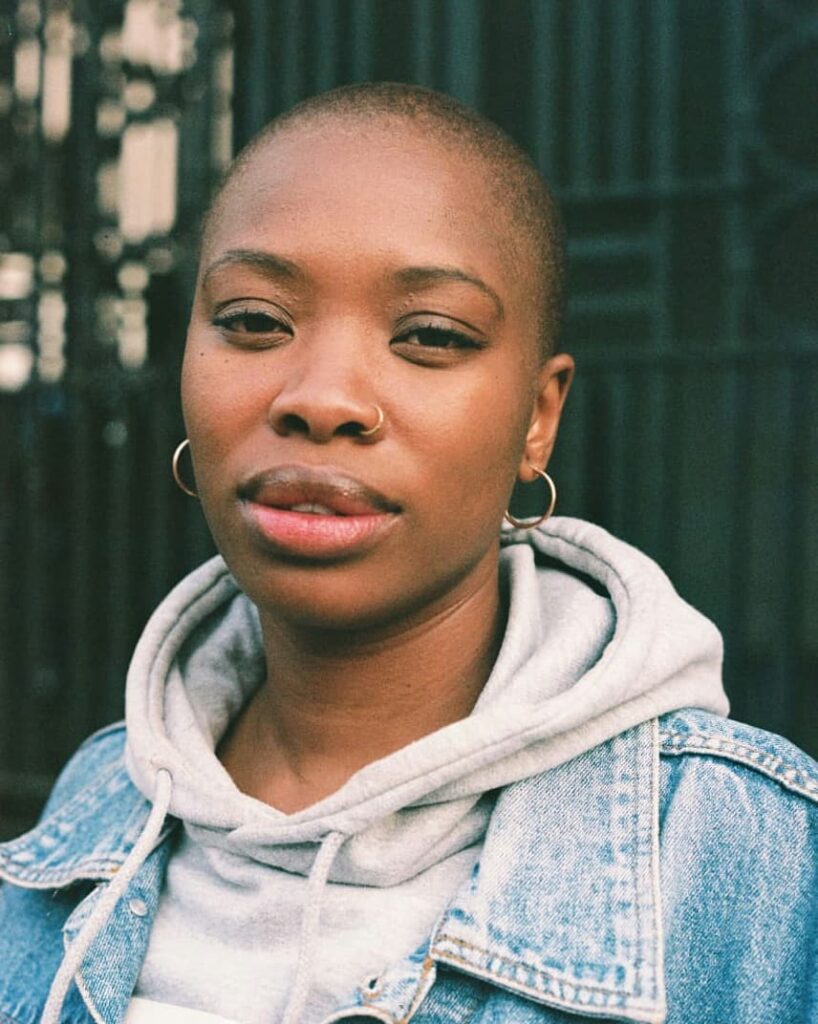Helping hand: Nelisiwe Xaba's performance lecture 'Bang Bang Wo' examines the baggage that comes with help. ( Stella Olivier/ The Centre For The Less Good Idea)
“Black women have always been at the mercy of extractive environments through unpaid, underpaid or ‘invisibilised’ labour,” researcher, vinyl collector and DJ Nombuso Mathibela said of the position a Black women and trans people in the art world.
Mathibela’s research has its roots in African feminist thought, Black feminist philosophy, decolonisation and how they play out under South Africa’s current legislation.
In South Africa’s arts and culture landscape, Black (and sometimes queer) women have gradually begun occupying positions of authority and addressing the servitude they are subjected to. It’s evident in museums, galleries, theatres, art fairs, institutions of learning and contemporary art-focused publications. There is progress.
But, if likened to a road trip with a desired end, the journey has been characterised by its lengthy, uphill nature as well as congestion, U-turns, roadblocks, collisions, potholes and hijackings.
As the world addresses the dismantling of lifelong pandemics such as white supremacy, transphobia, femicide, misogyny and systemic racism, there has been a resurgence in activists going online and calling for allies to support Black trans people and women.
This is not the first call to support Black women. Performance artist Nelisiwe Xaba addressed it in a 2017 performance lecture held at The Centre For The Less Good Idea in Maboneng, Johannesburg. Titled Bang Bang Wo — which is Mandarin for “help” — the performance unpacked the terms, conditions, restrictions and connotations that come with variations of help, spanning domestic work, Black tax, education funds, charity work, affirmative action and online allyship.
Xaba approaches the concept of support with an understanding that not only comes from growing up in South Africa but also as the recipient of scholarships to study at the Johannesburg Dance Foundation and then the Rambert School of Ballet and Contemporary Dance in London.
As a start, Xaba picked apart the relationship between declarations of freedom — whether the abolition of slavery, colonial rule, apartheid and misogynistic and queerphobic laws or norms — and a willingness for privileged people to assist in the socioeconomic rehabilitation of marginalised people. Once this was established, Xaba used movement, props and a monologue to show help for what it often is: a precarious tool that encourages and ultimately expects those on the receiving end to bend, shrink and conform for the favour of allies that take on the form of employers, funders and gatekeepers. Three years after its premier, the lecture still rings true.
 Puleng Mongale says she has been on the receiving end of financial support from allies on numerous occasions in the last month or so(Khotso Bantu Mahlangu)
Puleng Mongale says she has been on the receiving end of financial support from allies on numerous occasions in the last month or so(Khotso Bantu Mahlangu)As a mother of a three-year-old depending on the income she makes from her prints, photographer and digital collagist Puleng Mongale is open to all the support that she can get. She says she has been on the receiving end of financial support from allies on numerous occasions in the last month or so. “I don’t mind it at all, I’ve actually asked for it,” Mongale says of her request for help to print work for a show. They reached her through direct messages on Instagram. “Allison Swank was one of them, there was also Sam Golblatt and Flurina Rothenberger. Those are some of the ones I can think of, off the top of my head,” says Mongale.
So far the support has come in the form of cash and collectors buying her work. Although Mongale has considered accepting residencies or opportunities to study, she is wary of exploitation or being put in a position where she has to compromise her practice. She says this is because she is an independent artist without the backing or know-how that comes with being signed to a gallery or the navigation tools that come with formal art training. “Everything is communicated in art English and I think that can throw me off. I don’t understand art English as much as I thought I did, especially when it comes to fine print,” she says.
Although Khumo Sebambo agrees with Mongale in that every ally in a position to support, donate and buy work from Black women should do so. She doesn’t see the point if such efforts are a knee-jerk response to current pressures. Instead, the writer and curator says the only way support can work is if it is lifelong and expects nothing in return. “By lifelong I mean allies must continue to not only buy but find meaningful ways to support Black artists [through] residencies, paying awards, studios, arts education, etc,” adds Sebambo, who has witnessed the short-lived nature of support through once-off purchases.
 Writer and curator Khumo Sebamo says the only way support can work is if it is lifelong. (Delwyn Verasamy)
Writer and curator Khumo Sebamo says the only way support can work is if it is lifelong. (Delwyn Verasamy)
Even though all forms of help — be it buying work, endorsements, prize money and investments — are welcome, they have historically helped to maintain and reinforce existing dynamics. This is addressed in a 2018 Mail & Guardian article about attempts at transforming the local art industry. In the article, artist and art historian Thembinkosi Goniwe says he is concerned with “the common practice of white enterprises that rent natives for purposes of tokenism and window dressing, legitimacy and political correctness while alienating Black professionals from the actual means of economic production and creation of wealth … operations are white business as usual”. His statement can be backed up by looking at the exclusion of Black women and Black trans people in the ownership, executive positions and specialist roles at establishments such as Strauss & Co where there is no Black person on the board of directors.
Although Mathibela agrees that support free of red tape is crucial, her closing remark highlights the futility of looking at the plight of artists in isolation. “The act of artistic expression is a productive force and a form of labour. [But it] needs to be articulated within the broader lexicon of Black women worker struggles
“We need to approach the exploitation of Black women artists, factory workers [and] street vendors in the same sentence, in spite of the material structural difference that exists among these workers.”